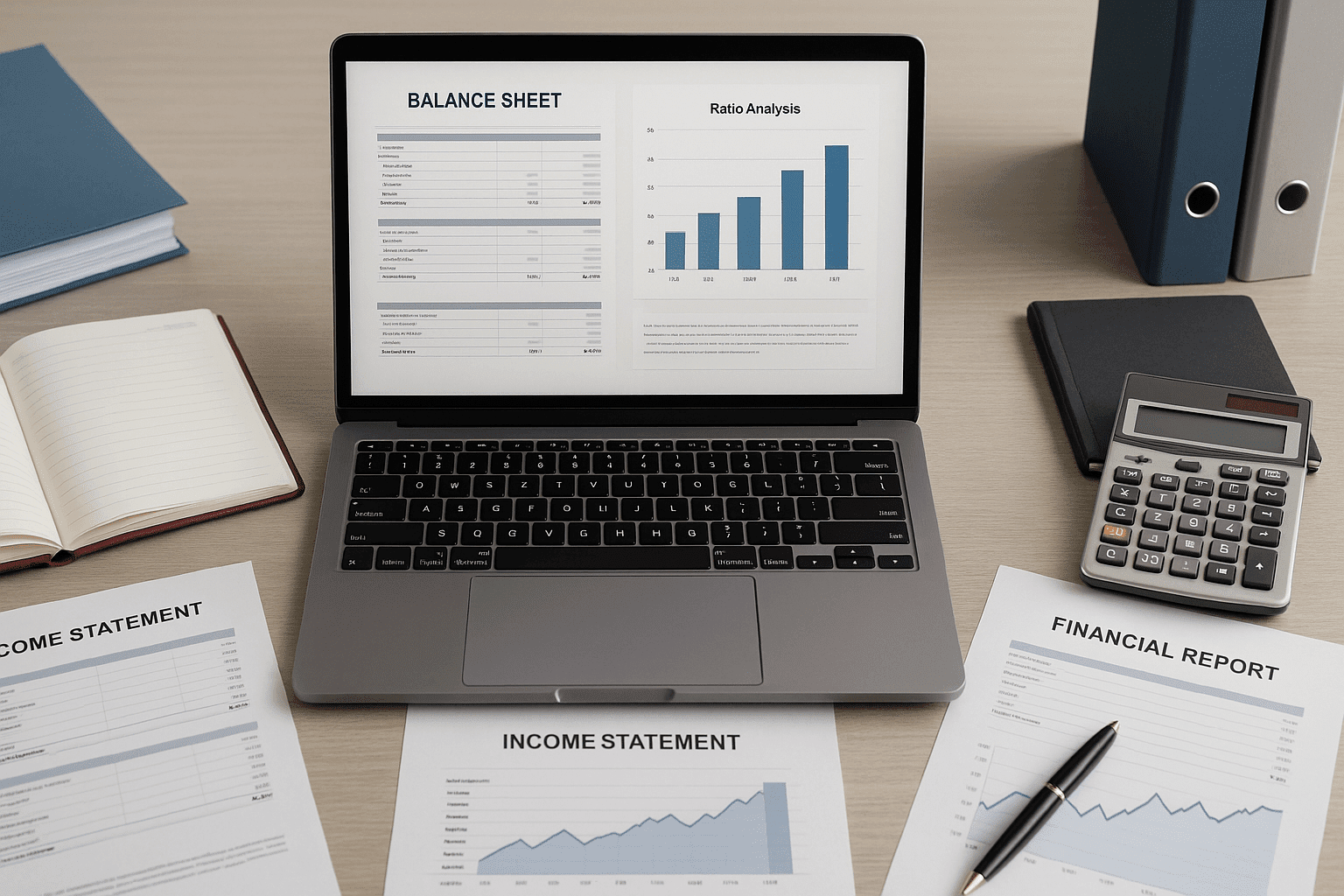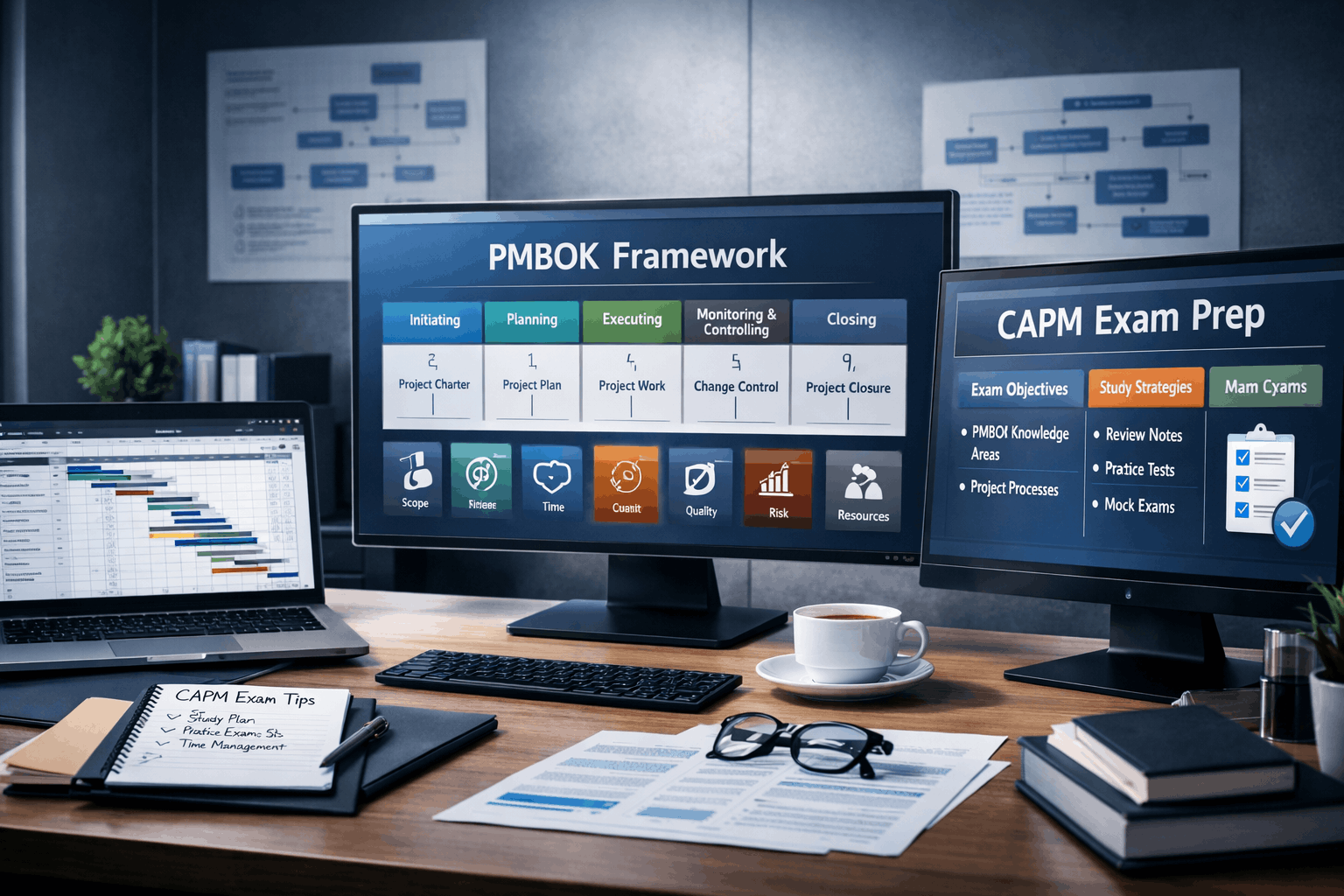Course Features
Price
Study Method
Online | Self-paced
Course Format
Reading Material - PDF, article
Duration
3 hours, 55 minutes
Qualification
No formal qualification
Certificate
At completion
Additional info
Coming soon
- Share
Overview
Accounting and finance form the backbone of every successful organisation, and this course provides a structured, practical pathway for anyone seeking to understand how financial information is created, analysed, and used in real decision-making. The training begins with the fundamental principles of accounting before guiding learners through the responsibilities of accountants, the purpose of financial records, and the importance of recognised standards. Each topic is presented in a way that supports genuine understanding, helping learners develop confidence as they explore increasingly complex concepts.
You will work through journals, ledgers, subsidiary books, and key documentation to understand how transactions move through the accounting system. Clear explanations of bookkeeping essentials ensure that learners build strong foundations before advancing to financial reporting. As the course progresses, you will examine profit and loss accounts, balance sheets, cash flow statements, and end-of-period procedures — all central to understanding an organisation’s financial health.
To support analytical thinking, the curriculum includes variance analysis, ratio analysis, budgeting, and financial planning. These modules help learners interpret trends, identify performance issues, and make informed recommendations. You will also explore investment evaluation methods, working capital management, and the fundamentals of financial management, giving you a broader perspective on how businesses plan for growth.
The course concludes with an introduction to auditing, allowing learners to understand how accuracy, transparency, and control are maintained within financial systems. Throughout the programme, complex ideas are broken down using simple language, ensuring that learners develop knowledge they can apply in real-life contexts.
All participants will receive a free course completion certificate, with optional premium certificates and transcripts available for purchase if they wish. Students also enjoy 5-star rated support available 24/7 via email, ensuring guidance is always within reach.
Who is this course for?
Accounting and finance form the backbone of every successful organisation, and this course provides a structured, practical pathway for anyone seeking to understand how financial information is created, analysed, and used in real decision-making. The training begins with the fundamental principles of accounting before guiding learners through the responsibilities of accountants, the purpose of financial records, and the importance of recognised standards. Each topic is presented in a way that supports genuine understanding, helping learners develop confidence as they explore increasingly complex concepts.
You will work through journals, ledgers, subsidiary books, and key documentation to understand how transactions move through the accounting system. Clear explanations of bookkeeping essentials ensure that learners build strong foundations before advancing to financial reporting. As the course progresses, you will examine profit and loss accounts, balance sheets, cash flow statements, and end-of-period procedures — all central to understanding an organisation’s financial health.
To support analytical thinking, the curriculum includes variance analysis, ratio analysis, budgeting, and financial planning. These modules help learners interpret trends, identify performance issues, and make informed recommendations. You will also explore investment evaluation methods, working capital management, and the fundamentals of financial management, giving you a broader perspective on how businesses plan for growth.
The course concludes with an introduction to auditing, allowing learners to understand how accuracy, transparency, and control are maintained within financial systems. Throughout the programme, complex ideas are broken down using simple language, ensuring that learners develop knowledge they can apply in real-life contexts.
All participants will receive a free course completion certificate, with optional premium certificates and transcripts available for purchase if they wish. Students also enjoy 5-star rated support available 24/7 via email, ensuring guidance is always within reach.
Requirements
Accounting and finance form the backbone of every successful organisation, and this course provides a structured, practical pathway for anyone seeking to understand how financial information is created, analysed, and used in real decision-making. The training begins with the fundamental principles of accounting before guiding learners through the responsibilities of accountants, the purpose of financial records, and the importance of recognised standards. Each topic is presented in a way that supports genuine understanding, helping learners develop confidence as they explore increasingly complex concepts.
You will work through journals, ledgers, subsidiary books, and key documentation to understand how transactions move through the accounting system. Clear explanations of bookkeeping essentials ensure that learners build strong foundations before advancing to financial reporting. As the course progresses, you will examine profit and loss accounts, balance sheets, cash flow statements, and end-of-period procedures — all central to understanding an organisation’s financial health.
To support analytical thinking, the curriculum includes variance analysis, ratio analysis, budgeting, and financial planning. These modules help learners interpret trends, identify performance issues, and make informed recommendations. You will also explore investment evaluation methods, working capital management, and the fundamentals of financial management, giving you a broader perspective on how businesses plan for growth.
The course concludes with an introduction to auditing, allowing learners to understand how accuracy, transparency, and control are maintained within financial systems. Throughout the programme, complex ideas are broken down using simple language, ensuring that learners develop knowledge they can apply in real-life contexts.
All participants will receive a free course completion certificate, with optional premium certificates and transcripts available for purchase if they wish. Students also enjoy 5-star rated support available 24/7 via email, ensuring guidance is always within reach.
Career path
Accounting and finance form the backbone of every successful organisation, and this course provides a structured, practical pathway for anyone seeking to understand how financial information is created, analysed, and used in real decision-making. The training begins with the fundamental principles of accounting before guiding learners through the responsibilities of accountants, the purpose of financial records, and the importance of recognised standards. Each topic is presented in a way that supports genuine understanding, helping learners develop confidence as they explore increasingly complex concepts.
You will work through journals, ledgers, subsidiary books, and key documentation to understand how transactions move through the accounting system. Clear explanations of bookkeeping essentials ensure that learners build strong foundations before advancing to financial reporting. As the course progresses, you will examine profit and loss accounts, balance sheets, cash flow statements, and end-of-period procedures — all central to understanding an organisation’s financial health.
To support analytical thinking, the curriculum includes variance analysis, ratio analysis, budgeting, and financial planning. These modules help learners interpret trends, identify performance issues, and make informed recommendations. You will also explore investment evaluation methods, working capital management, and the fundamentals of financial management, giving you a broader perspective on how businesses plan for growth.
The course concludes with an introduction to auditing, allowing learners to understand how accuracy, transparency, and control are maintained within financial systems. Throughout the programme, complex ideas are broken down using simple language, ensuring that learners develop knowledge they can apply in real-life contexts.
All participants will receive a free course completion certificate, with optional premium certificates and transcripts available for purchase if they wish. Students also enjoy 5-star rated support available 24/7 via email, ensuring guidance is always within reach.
-
- Introduction to Accounting 00:10:00
-
- The Role of an Accountant 00:10:00
- Accounting Concepts and Standards 00:10:00
- Bookkeeping 00:10:00
- Profit and Loss Accounts 00:10:00
- Cash Flow Statements 00:10:00
- Ratio Analysis 00:10:00
- Management of Working Capital 00:10:00
- Investment Methods 00:10:00
- Auditing 00:10:00
- Premium Certificate 00:15:00

Is this certificate recognized?
Yes, our premium certificate and transcript are widely recognized and accepted by embassies worldwide, particularly by the UK embassy. This adds credibility to your qualification and enhances its value for professional and academic purposes.
I am a beginner. Is this course suitable for me?
Yes, this course is designed for learners of all levels, including beginners. The content is structured to provide step-by-step guidance, ensuring that even those with no prior experience can follow along and gain valuable knowledge.
I am a professional. Is this course suitable for me?
Yes, professionals will also benefit from this course. It covers advanced concepts, practical applications, and industry insights that can help enhance existing skills and knowledge. Whether you are looking to refine your expertise or expand your qualifications, this course provides valuable learning.
Does this course have an expiry date?
No, you have lifetime access to the course. Once enrolled, you can revisit the materials at any time as long as the course remains available. Additionally, we regularly update our content to ensure it stays relevant and up to date.
How do I claim my free certificate?
I trust you’re in good health. Your free certificate can be located in the Achievement section. The option to purchase a CPD certificate is available but entirely optional, and you may choose to skip it. Please be aware that it’s crucial to click the “Complete” button to ensure the certificate is generated, as this process is entirely automated.
Does this course have assessments and assignments?
Yes, the course includes both assessments and assignments. Your final marks will be determined by a combination of 20% from assignments and 80% from assessments. These evaluations are designed to test your understanding and ensure you have grasped the key concepts effectively.
Is this course accredited?
We are a recognized course provider with CPD, UKRLP, and AOHT membership. The logos of these accreditation bodies will be featured on your premium certificate and transcript, ensuring credibility and professional recognition.
Will I receive a certificate upon completion?
Yes, you will receive a free digital certificate automatically once you complete the course. If you would like a premium CPD-accredited certificate, either in digital or physical format, you can upgrade for a small fee.
Course Features
Price
Study Method
Online | Self-paced
Course Format
Reading Material - PDF, article
Duration
3 hours, 55 minutes
Qualification
No formal qualification
Certificate
At completion
Additional info
Coming soon
- Share
Certified Associate in Project Management (CAPM) Exam Prep
Course Line241£490.00Original price was: £490.00.£14.99Current price is: £14.99.Retail Shop Supervisor
Course Line241£490.00Original price was: £490.00.£14.99Current price is: £14.99.Director of Football Level 3: Advanced Contract Negotiation and Player Transfers
Course Line238£490.00Original price was: £490.00.£14.99Current price is: £14.99.
Related Courses
PRINCE2 in the Real World: Practical Project Management Skills
£490.00Original price was: £490.00.£14.99Current price is: £14.99. 237
237PRINCE2 Practitioner Certification Preparation
£490.00Original price was: £490.00.£14.99Current price is: £14.99. 237
237
Related Courses
PRINCE2 in the Real World: Practical Project Management Skills
£490.00Original price was: £490.00.£14.99Current price is: £14.99. 237
237PRINCE2 Practitioner Certification Preparation
£490.00Original price was: £490.00.£14.99Current price is: £14.99. 237
237









mllllllllllllll jjjjjjjjjjjjjjjjjj kkkkkkkkkkkkkkk